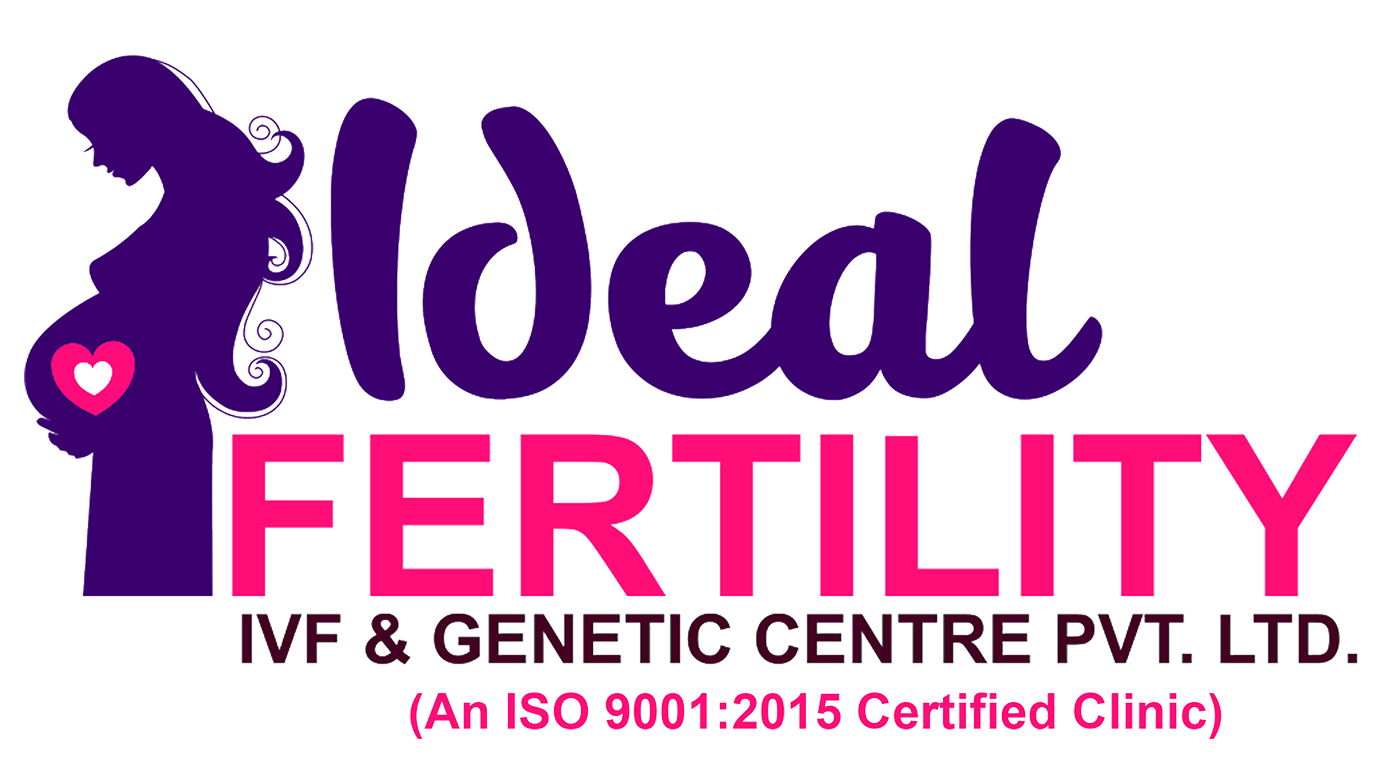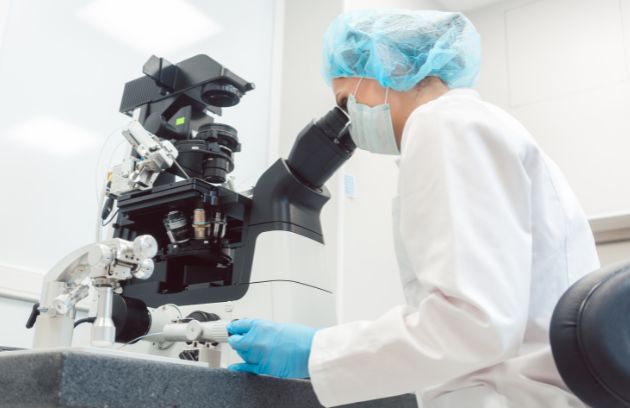Table of Contents
For many individuals and couples, the journey to parenthood is one filled with excitement and anticipation. However, for some, this journey may take longer or prove more challenging than expected. In such cases, seeking the guidance of a fertility specialist can make a significant difference. Recognizing the signs that it may be time to consult an expert is crucial to address underlying issues and explore effective solutions like female infertility treatment or other fertility options.
This article will help you understand the signs that indicate you may need a fertility specialist and the importance of early intervention in achieving your goal of having a child. By addressing the challenges head-on, you can benefit from advanced medical care and treatments tailored to your specific needs.
Understanding Infertility
Infertility is defined as the inability to conceive after one year of regular, unprotected intercourse for women under 35 or six months for women over 35. It affects both men and women and may result from various physical, hormonal, or lifestyle factors.
When it comes to women, infertility can stem from several causes, such as ovulation disorders, blocked fallopian tubes, uterine abnormalities, or endometriosis. Advanced female infertility treatments like in vitro fertilization (IVF), hormone therapy, or surgical interventions have made it possible for many women to overcome these challenges and conceive successfully.
Signs That You May Need a Fertility Specialist
While every individual’s journey to conception is unique, certain signs may indicate that you should seek help from a fertility expert. Here are some key situations where consulting a specialist might be beneficial:
1. You’ve Been Trying to Conceive Without Success
The most common reason to see a fertility specialist is the inability to conceive despite trying for an extended period.
- Women under 35 are encouraged to seek help after one year of trying to conceive.
- Women over 35 should consider consulting a specialist after six months of unsuccessful attempts, as fertility naturally declines with age.
Early intervention allows for a proper diagnosis and the exploration of options like female infertility treatment, which can significantly improve your chances of conception.
2. Irregular or Absent Menstrual Cycles
A healthy menstrual cycle is a key indicator of regular ovulation, which is essential for conception. Irregular cycles, skipped periods, or prolonged gaps between menstruation can signal ovulation issues, such as polycystic ovary syndrome (PCOS), hormonal imbalances, or thyroid dysfunction.
Fertility specialists can perform detailed assessments to identify the root cause of irregular cycles and recommend tailored female infertility treatments, such as ovulation-inducing medications or hormonal therapy.
3. History of Reproductive Health Issues
If you have a history of conditions like endometriosis, pelvic inflammatory disease (PID), or uterine fibroids, you may face challenges with conception. These conditions can affect egg quality, implantation, or the structure of the reproductive organs, making it harder to achieve pregnancy.
A fertility specialist can provide advanced female infertility treatment options to address these conditions, including laparoscopic surgery, fertility medications, or assisted reproductive technologies (ART).
4. You’ve Experienced Multiple Miscarriages
Recurrent pregnancy loss (two or more miscarriages) is a significant reason to consult a fertility specialist. Miscarriages can result from chromosomal abnormalities, uterine issues, or hormonal imbalances. Testing and specialized female infertility treatment can help identify and address the causes, increasing the likelihood of a successful pregnancy in the future.
5. Age and Fertility Concerns
Age is one of the most critical factors influencing fertility, especially for women. Female fertility declines significantly after age 35 due to a decrease in both egg quantity and quality. By the age of 40, the chances of natural conception drop to around 5%.
Women who are approaching their late 30s or early 40s and are struggling to conceive should consider seeking help promptly. Fertility specialists can offer options like egg freezing, IVF, or other female infertility treatments to optimize the chances of conception.
6. Known Male Factor Infertility
Infertility is not just a female issue; male factor infertility accounts for approximately 30-40% of infertility cases. If your partner has been diagnosed with low sperm count, poor motility, or abnormal morphology, it’s essential to consult a fertility specialist. Combining male and female infertility treatments may provide the best pathway to success.
7. Chronic Health Conditions
Certain chronic health conditions, such as diabetes, autoimmune disorders, or obesity, can affect fertility. Women with these conditions should seek specialized care to manage their health and explore female infertility treatments designed to address these unique challenges.
8. Tubal Blockages or Damage
Blocked or damaged fallopian tubes can prevent sperm from reaching the egg or hinder the fertilized egg from traveling to the uterus. This issue is commonly caused by pelvic infections, prior surgeries, or conditions like endometriosis. Fertility specialists can diagnose tubal issues using imaging tests like hysterosalpingography (HSG) and recommend treatments such as tubal surgery or IVF.
9. Unexplained Infertility
In some cases, couples may face infertility without any identifiable cause despite undergoing standard tests. This is known as unexplained infertility and can be frustrating. A fertility specialist can guide you through advanced diagnostic tests and explore options like female infertility treatment to increase your chances of conception.
The Role of Female Infertility Treatment in Achieving Parenthood
Once you’ve decided to consult a fertility specialist, the next step is to determine the appropriate treatment plan. Advanced female infertility treatments have revolutionized the way couples approach conception. Some of the most common treatments include:
1. Ovulation Induction
This involves the use of medications like clomiphene citrate or gonadotropins to stimulate ovulation in women with irregular or absent cycles. Ovulation induction is often the first step in female infertility treatment, especially for conditions like PCOS.
2. Intrauterine Insemination (IUI)
IUI involves placing sperm directly into the uterus during ovulation to increase the chances of fertilization. This procedure is commonly used in cases of mild male infertility or unexplained infertility.

3. In Vitro Fertilization (IVF)
IVF is one of the most effective forms of female infertility treatment. It involves retrieving eggs from the ovaries, fertilizing them with sperm in a lab, and transferring the resulting embryos into the uterus. IVF is often recommended for women with tubal blockages, severe endometriosis, or advanced age.
4. Egg Freezing
For women who wish to delay pregnancy, egg freezing allows them to preserve their fertility. The eggs are collected and cryopreserved for future use, providing an option to conceive later in life when natural fertility declines.
5. Surgical Interventions
Surgery may be required to correct structural abnormalities, such as fibroids, polyps, or adhesions, that affect the uterus or fallopian tubes. Minimally invasive procedures like laparoscopy can restore fertility in many cases.
Why Early Intervention Matters
Delaying the decision to see a fertility specialist can reduce the chances of successful treatment, especially as age plays a crucial role in female fertility. Early intervention not only provides clarity about potential barriers to conception but also ensures that you have access to a broader range of female infertility treatment options. Acting promptly can make a significant difference in achieving your goal of parenthood.
Conclusion
Deciding when to see a fertility specialist is a deeply personal decision, but recognizing the signs that you may need help with conception is essential for taking the next step. Whether you’re dealing with irregular cycles, underlying health issues, or age-related fertility challenges, consulting a fertility expert can provide clarity, support, and access to advanced female infertility treatments.
Modern medical advancements have made it possible to overcome many of the barriers to conception, offering hope to individuals and couples struggling with infertility. By addressing these challenges early and seeking the appropriate female infertility treatment, you can increase your chances of achieving the family you’ve always dreamed of. Remember, you don’t have to face this journey alone—fertility specialists are here to guide and support you every step of the way.

